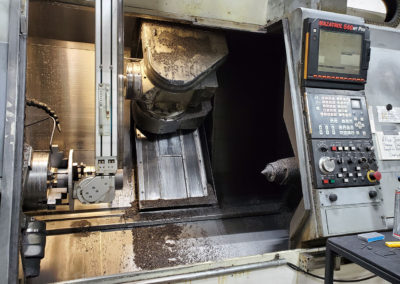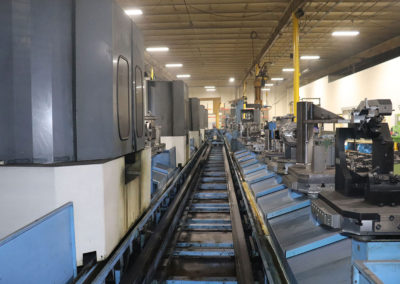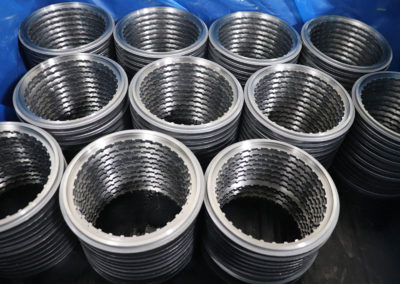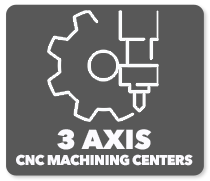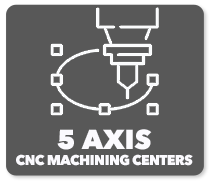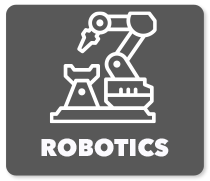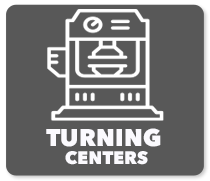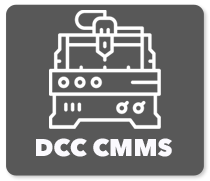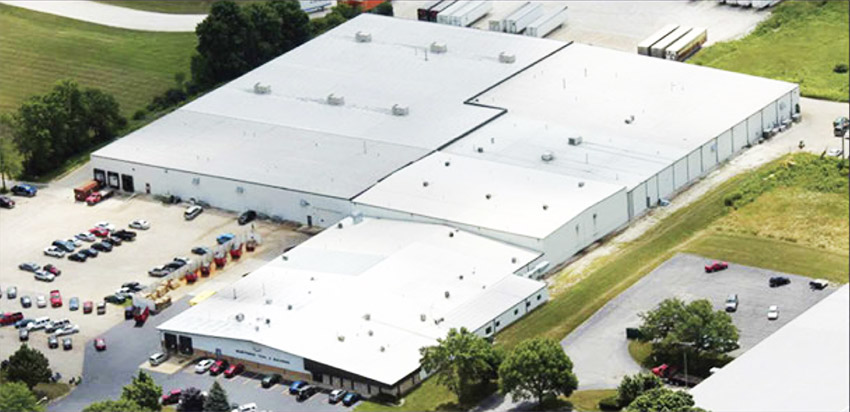Robotics
 Where are the roles of robotics in manufacturing?
Where are the roles of robotics in manufacturing?
Robotics today is changing the very essence of how we manufacture and move parts of all shapes and sizes. They are designed to accomplish a variety of tasks that are either too inefficient from a cost perspective for a human to perform, or even too dangerous. It takes the shortcomings of human intervention and transforms that into an advantage for a dedicated machine to execute. Not only that robots make far less mistakes, but in this current labor environment where good talent is hard to find, robotics has become much more common than in years past. Whether it’s the monotony of a repetitive task, or the challenge of a hazardous environment, robots have been able to provide a solution more and more machine shops are utilizing today.
What are the benefits and drawback of implementing robotics in a manufacturing setting?
On the surface it appears that robotics would be a home run vs the traditional human operator, but that’s on always the case. Let’s look at some pros and cons of implementing robotics into your plant.
Pros:
- Costs long term – The initial cost of implementing robotics into your plant will no doubt be expensive. Over a long period of time however the productivity of your robotic cells should overcome the cost associated with using a traditional human workforce. Not only that as more modern version of your machines are introduced the cost of maintaining or adding additional cells may decrease.
- Safety – Automation can alleviate environmental risks associated with different kinds of work. Extreme cold, heat, poor air quality, and hazardous materials can all contribute towards the need for robotics. These machines can do all the heavy lifting and exist safely in virtually any environment without harming themselves. This leads to increased productivity, reduced costs and significantly less accidents.
- Capability – Robots are faster, don’t need breaks and more efficient at tasks which can be automated. This will make any shop more cost-effective overall with time, and possibly attract some new customers. They reduce cycle times and typically produce a better quality product vs a traditional workforce.
Cons:
- High initial investment: When considering purchasing robotics for your shop you need to consider all the costs, including installation and programming. It’s important to evaluate whether your robot can be easily modified if you need to alter its operation in the future, or ungradable as the technology evolves.
- Finding technicians can be challenging: Industrial robots need qualified and trained operators. Maintaining proper maintenance schedules and finding a tech that can program these machines is paramount. While the number of people with these skills are growing, it’s currently limited. As a result, it’s important to consider the investment you’ll need to make to bring in that expertise or train your existing staff.
- Ongoing costs: While industrial robots may reduce some manufacturing labor costs, they do come with their own ongoing expenses, such as maintenance. In addition, as the technology grows you may find your robot quickly becoming obsolete which will affect its resale value and potentially parts availability, which will increase the cost of future ownership. Furthermore, don’t simply buy the cheapest robot you can find. Buy one from a reputable company that stands behind its products, who offers proper tech support and spare parts on hand. Buy it right, buy it once.
Request A Quote today for more information to inquire if our robotic capabilities for production is the best solution for your current, or upcoming project and one of our experienced engineers will get back to you right away.
Production Machining Division
Manitowoc Tool and Machining, LLC
4211 Clipper Drive
Manitowoc, WI 54220
Phone: (920) 682-8825
Toll Free: 855-243-2569
Fax: (920) 682-4299
Warehouse: Shipping/Receiving
Manitowoc Tool and Machining, LLC
1210 S. 41st Street
Manitowoc, WI 54220
Phone: (920) 682-8825
Fax: (920) 682-4299

